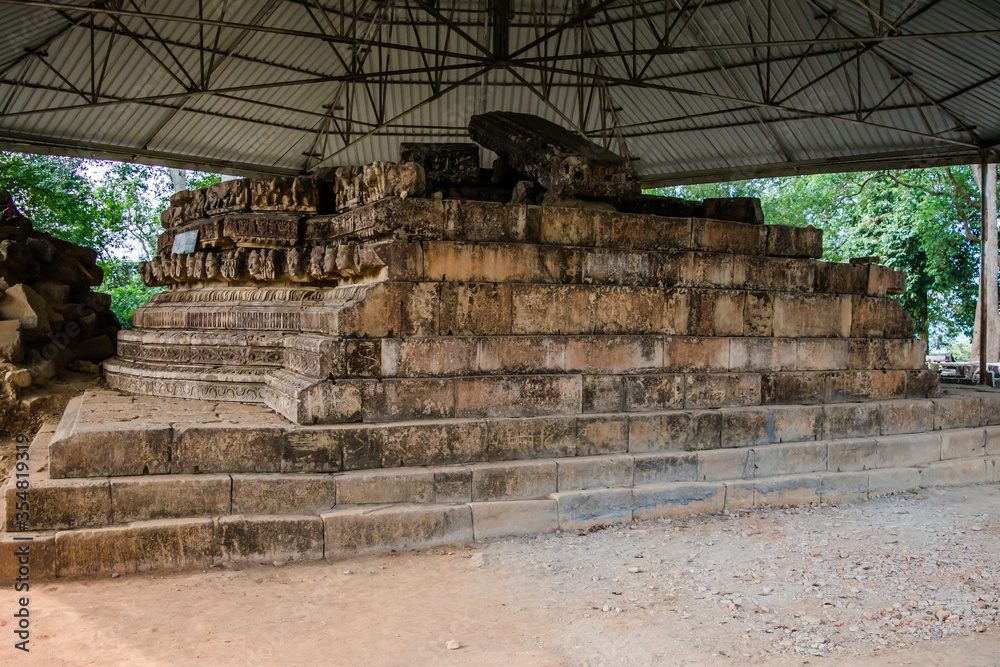

The Deopahar Ruins near Kaziranga in Assam is one of the lesser-known historical sites that offer a window into the bygone times of the region. Not as explored as other tourist spots in Assam, Deopahar is slowly gaining recognition for its archaeological significance and natural setting.
The ancient ruins at Deopahar are believed to date back to the 9th century and are representative of the rich cultural and religious history of Assam. Though not much is documented about the early days of tourism at Deopahar, local lore and archaeological studies suggest that what remains today was once part of a sprawling temple complex connected to the reign of the Kachari kingdom. These ruins are reflective of the architectural skills and spiritual inclinations of Assam's historical societies.
The history of tourism in Deopahar is relatively recent. It was only in the past few decades that the Assam Tourism Development Corporation began to recognize the potential of the area. With increased interest in the ecological diversity of nearby Kaziranga National Park, the ruins of Deopahar have started attracting the interest of history enthusiasts and eco-tourists alike.
Infrastructure enhancements, including the improvement of road connectivity and the establishment of local guides, have made Deopahar more accessible to visitors. Signage and information boards have been installed to educate tourists on the historical importance of the ruins.
To preserve its archaeological significance, conservation efforts are being undertaken by the Archaeological Survey of India (ASI). These efforts are aimed at maintaining the structural integrity of the ruins while allowing tourists to experience the vestiges of Assam's past without causing additional damage.
Recent trends in tourism at Deopahar and the surrounding region include an emphasis on eco-tourism and sustainable practices. Tourists are increasingly looking for travel experiences that are environmentally friendly and culturally informative.
Community involvement is also rising, with local residents participating in the tourism industry by offering homestays, cultural tours, and handcrafted souvenirs. This fosters a more authentic experience for visitors and helps to boost the local economy.
Visitors to the Deopahar Ruins can expect to explore the remnants of ancient temples engulfed by lush greenery. The serene ambience, combined with the historic significance of the site, creates a unique experience that goes beyond conventional sightseeing.
While Deopahar does not yet attract the same level of attention as Kaziranga National Park, its close proximity to the world-famous sanctuary makes it an ideal addition to the itinerary of travelers interested in both nature and history.